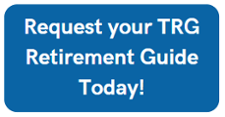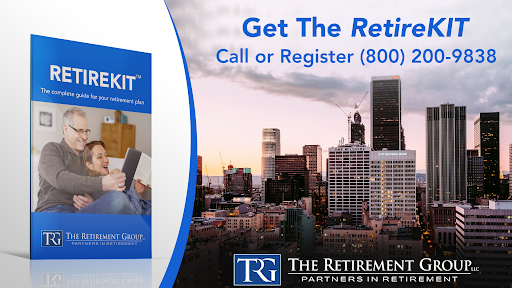What Is It?
Assume you're a car owner, and you have a personal auto policy (PAP). You've recently been involved in an accident in which someone is injured or your vehicle is damaged. To be certain that your claim is paid in a timely manner, it's important to follow the requirements listed in Part E of your PAP.
The insurance company is responsible for paying claims that are covered under your PAP. Part E of the PAP, Duties after an Accident or Loss, imposes certain duties on you that must be complied with for you to collect. Common duties include the requirement to notify the insurer of your claim, to protect the property involved in the loss, and to cooperate with the insurer in settling the claim. Part E is your guide to successfully making a claim. It contains a list of general and specific duties that you must comply with. It's essential for you to follow these duties carefully, because payment of your claim might depend on it.
General Duties
The first section of Part E describes the general duties that are required of you and your insurer. Your insurance company might have no duty to provide coverage unless you have fully complied with the list of duties in your policy.
Your general duty is to promptly notify the insurance company of how, when, and where the accident or loss occurred. Your notice should include the names and addresses of any injured persons and witnesses.
Caution: You may have other duties that are not listed in your PAP. State law may require that you contact the police after an accident, for instance.
Duties after You Have Reported the Loss
After a loss has been reported, there are a number of specific duties that you must comply with.
Caution: It's very important to read and understand this section of the PAP. If you do not comply with any of these duties, the insurer can deny the coverage. When seeking coverage, here is what you usually must do:
-
Cooperate with the insurer in the investigation, settlement, or defense of any claim or suit.
-
Promptly send the insurer copies of any notices or legal papers you receive in connection with the accident or loss.
-
Submit to physical exams, as often as reasonably required, by physicians selected by the insurance company. The insurer will pay the cost of any such exams.
-
Submit to be examined under oath as often as reasonably required. The insurer may want to ask you questions under oath to record your version of the accident. You also may be required to testify under oath in a court of law.
-
Authorize the insurance company to obtain medical reports and any other pertinent records.
-
Submit a proof-of-loss form when the insurer requires it. A proof-of-loss form is a sworn statement that provides general information about the accident. It also should include information about any other insurance policies that may cover the loss.
Full cooperation with your insurer makes settling or otherwise resolving your claim easier. Generally, the more you cooperate with your insurer, the faster your claim will be paid. That's not to say you shouldn't contest any decision that you believe to be unfair. If you can cooperate, however, it's often in your best interest to do so.

Duties Regarding Uninsured Motorist (UM) Coverage
In addition to the general duties that apply to all losses covered under your PAP, there are special duties that apply only to uninsured motorist (UM) coverage.
When seeking UM coverage, you must do the following:
-
Promptly call the police if a hit-and-run driver is involved
-
Promptly send the insurer copies of the legal papers if a suit is brought
The first provision is designed to give the police the best chance of apprehending the hit-and-run driver. If that driver is found, he or she may have insurance that will pay for part, or all, of the claim. If you want to file a lawsuit against the uninsured motorist, your policy requires you to give notice to the insurer. You are also required to provide the insurer with copies of any legal papers when the suit is brought.
Duties Regarding Coverage for Damage to Your Auto
There are also additional duties that apply only to coverage for damage to your auto. These duties include collision and comprehensive coverage. The intention of these additional duties is to limit any further damage to your vehicle.
When making a claim for collision or comprehensive coverage, you must do the following:
-
Take reasonable steps after a loss to protect "your covered auto" or any "nonowned auto" and their equipment from further loss. The insurer will pay reasonable costs required to do this.
-
Promptly notify the police if "your covered auto" or any "nonowned auto" is stolen
-
Permit the insurer to inspect and appraise the damaged property before its repair or disposal
These provisions require you to take reasonable steps to protect the damaged vehicle. If you're involved in a serious accident, it's probably a good idea to have the car towed to a safe location. Under Section A, the insurer will pay reasonable costs for this towing. The insurer requires you to notify the police when your car is stolen, because if your vehicle is returned promptly, there may be little or no physical damage. Finally, you must give the insurer a chance to inspect your vehicle before it is repaired or disposed of. This requirement gives the insurer a chance to assess the damages before paying the claim. If the insurer cannot assess the damage beforehand, it has no way of knowing how much to pay for the claim.
This material was prepared by Broadridge Investor Communication Solutions, Inc., and does not necessarily represent the views of The Retirement Group or FSC Financial Corp. This information should not be construed as investment advice. Neither the named Representatives nor Broker/Dealer gives tax or legal advice. All information is believed to be from reliable sources; however, we make no representation as to its completeness or accuracy. The publisher is not engaged in rendering legal, accounting or other professional services. If other expert assistance is needed, the reader is advised to engage the services of a competent professional. Please consult your Financial Advisor for further information or call 800-900-5867.
The Retirement Group is not affiliated with nor endorsed by fidelity.com, netbenefits.fidelity.com, hewitt.com, resources.hewitt.com, access.att.com, ING Retirement, AT&T, Qwest, Chevron, Hughes, Northrop Grumman, Raytheon, ExxonMobil, Glaxosmithkline, Merck, Pfizer, Verizon, Bank of America, Alcatel-Lucent or by your employer. We are an independent financial advisory group that specializes in transition planning and lump sum distribution. Please call our office at 800-900-5867 if you have additional questions or need help in the retirement planning process.
The Retirement Group is a Registered Investment Advisor not affiliated with FSC Securities and may be reached at www.theretirementgroup.com.
